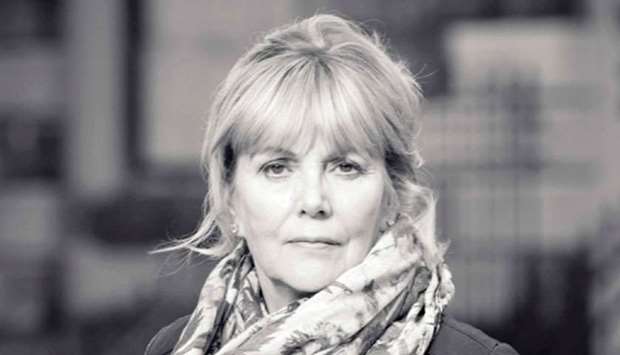Juliet is the latest creation of Britain’s Kate Atkinson, an author almost unique in her ability to write like a wizard (she’s a three-time winner of the Costa Prize) and sell stacks and stacks of books (three million and counting). In Transcription she returns to the years of England’s greatest travail, World War II, an era she used to splendid effect in her 2013 masterpiece Life After Life and its follow-up, A God in Ruins.
Atkinson is fascinated with the way the Fates toy with humans, teasing and tormenting until the thread of existence is snipped. Ursula, the sturdy heroine of Life After Life, is reborn over and over, tested again and again on the path to her ultimate fate. Juliet’s story is nearing its end on the first page, leaving a concert of Shostakovich string quartets in 1981, she is run over by a car on the streets of London. Mortally injured, she runs the film of her 60 years backward to a performance of the composer’s Leningrad symphony at the Royal Albert Hall in 1942. “The hall had been packed to the rafters and the atmosphere had been electrifying, magnificent, it had felt as though they were at one with the occupants of the siege. So long ago. So meaningless now.”
Forward to 1950. Julia is working at the BBC, a preferred post-war pasture for former spies. On a lunchtime stroll in a Marylebone park she spots Godfrey Toby, a former spymaster. She tries to flag him down but Toby, a George Smiley clone with an owlish face and tortoise shell glasses, politely tips his trilby and rebuffs her, “I’m sorry, Miss Armstrong? I think you have confused me with someone else.”
Then the story rewinds to 1940, when Julia meets Toby in the early days of the war. MI5 has set up a traitor trap two next-door apartments, same layout, same rose-and-trellis wallpaper. In one, Toby poses as an agent for the Gestapo, listening placidly absorbing it all ‘like a patient sponge.’ Microphones are embedded in the shared wall. In the other apartment, Juliet transcribes the conversations after they’ve been recorded, aided by a technician, supervised by an eccentric, nature-loving boss. There’s a wonderful doubleness to the setup, crazy would-be Nazis on one side, dogged English eccentrics on the other. Juliet soon has a leading role as a disaffected aristocrat, bait for a wealthy Nazi sympathiser. Eventually catastrophe strikes, in the guise of a careless comment about a dog.
Then it’s 1950 again and Julia, 10 years older, is being stalked by someone who leaves notes at the BBC reception desk. A bright young assistant is acutely interested in her comings and goings. And there’s Toby, who pretends not to know her. “The war was a clumsily stitched wound and it felt as if it was being opened by something,” she thinks, as a net of Hitchcockian proportions tightens around her.
Answers, when they emerge, aren’t entirely clear, especially in the key area of motivation. The most satisfying spy novels are a microcosm of the tormented politics of our troubled planet. We are all entangled in the game, and we want to watch as someone makes their choice in an indifferent universe. That’s why John le Carre’s George Smiley has endured beyond the end of the Cold War. Smiley remains faithful to a system that tries to crush him. He’s a hero in an anti-hero’s world.
Julia disillusioned, secretive, detached is moved around the chessboard by a group of masters who may or may not be on her side, and her own motives remain a mystery, to the reader and to herself. Atkinson’s exquisite prose, mordant wit and tenderness for her characters are on abundant display here but she doesn’t entirely answer the question of character, which in the best of novels drives the plot. The key to the riddle of Julia remains out of reach.– Newsday/TNS

